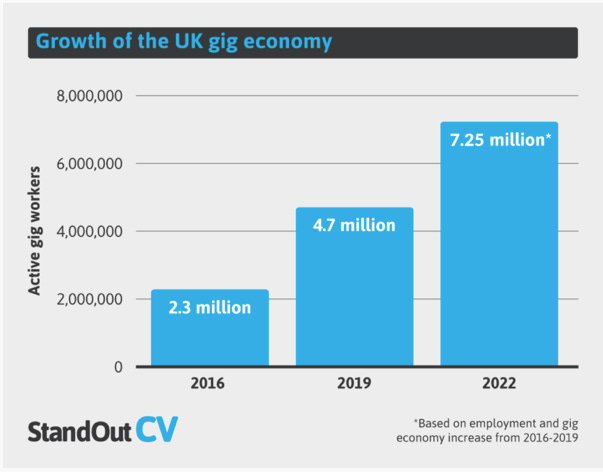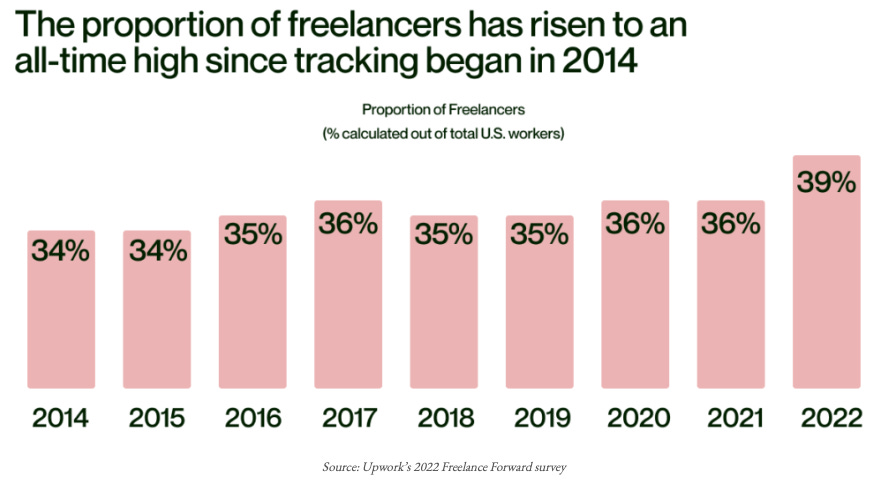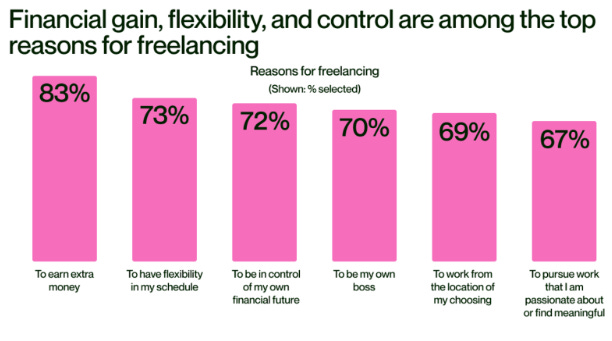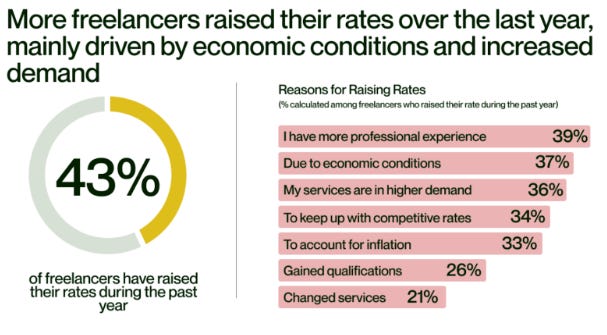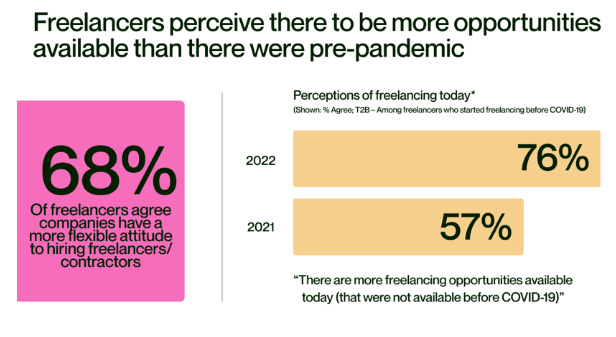Are you thinking about entering the world of freelancing?
Market Overview
Whilst the world is still recovering from the pandemic, it's a beautiful time to be a freelancer.
Many businesses cut their ranks by as much as 50%, yet many still need to return to staffing levels seen pre-2020.
This presents a lucrative opportunity for anyone who desires more freedom and flexibility in their work.
The freelancer market is increasingly growing, and businesses are preparing for an impending recession for 2023-2024.
This means there is an increased level of uncertainty, and businesses would instead outsource work in marketing, design, content creation, photography, programming and other desired skill sets than spend on hiring full-time employees.
Moreover, this isn't a trend set to change, and global businesses know it.
The trial of a 4-day work week and ‘fully remote’ jobs are just a hint of this increasing trend.
It's an effort from business owners to retain their staff and keep talent in-house.
People have realised (due to enforced remote working) that they don't need to spend hours commuting to an office every day.
They can complete their work to equal or better quality from the comfort of their own home and still have time to spare on other things. This is just the beginning…
For the basis of predominantly English-speaking countries in the West, let's look at the UK and US statistics below.
The proportion of UK freelancers has been growing steadily for the past six years, and this trend looks like it is set to continue.
This is also matched by the growing percentage of freelancers in the US, as seen below.
So why are so many people turning to freelancing?
Increased earning potential is on the list, as seen below. We are operating in a ‘freelancers market’; they have the power as companies scramble to cover skills gaps.
This means significantly increased earning potential and the ability to raise rates in recent years.
How have they been able to raise rates considering the economic downturn, supply chain issues, and recovery from covid-19?
It's the skills gap that was a consequence of the pandemic.
Now I know what you’re thinking, ‘surely, with the pandemic and the pending recession, it's a bad time to freelance?’ Well, not…
It's quite the opposite; there are now more freelancing opportunities today than before, and optimism between freelancers is at an all-time high.
This is because companies are more willing to take on contractors and freelancers because of the following factors;
Staff are being laid off to reduce costs
This creates a skills gap
Hiring contractors/freelancers is less capital-intensive than full-time employees
Pre-existing skills gap: many companies lost two years of potential training of junior employees during the pandemic. As a result, there is a lack of manager-level skill sets
Many existing staff are demanding more flexibility anyway
Furthermore, the offer of a 4-day work week and remote work is an effort to alleviate a growing proportion of workers seeking greater freedom and self-determination in their own lives.
They (like myself) all have these burning questions;
Why give up hours of my life every day commuting?
Shouldn't my work be about the quality and value I deliver rather than the time and place of the work?
How can my work revolve around my life rather than vice versa?
How can I adapt my work to better suit the life I want?
Why build someone else's dream when I can create my own?
Would you be interested in answering these questions?
Sign up for my free weekly newsletter below, where I discuss how to build a freelance business and other personal development topics to help you become the best version of yourself.
Sources:



